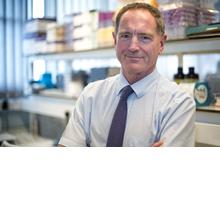Expert partnership to explore and establish Human Challenge studies of Covid-19
The NHS, academia and the private sector are joining forces with the government to explore and establish human challenge trials in the UK to speed up the development of a Covid-19 vaccine.
A £33.6m government investment will back the studies in partnership with Imperial College London, hVIVO and the Royal Free London NHS Foundation Trust, with expert input from medical researchers at the University of Southampton.
In human challenge studies, a vaccine candidate that has proven to be safe in initial trials is given to a small number of carefully selected healthy adult volunteers who are then exposed to the virus in a safe and controlled environment. Medics and scientists then closely monitor the effect on volunteers 24 hours per day to see exactly how the vaccine works and to identify any side effects.
As with all clinical studies in the UK, the proposed research will be carefully considered by regulators including the Medicines and Healthcare products Regulatory Agency (MHRA) and the NHS Health Research Authority through research ethics committees, before any research starts.
Using controlled doses of virus, the aim of the research team will initially be to discover the smallest amount of virus it takes to cause Covid-19 infection in small groups of healthy young people, aged between 18 and 30, who are at the lowest risk of harm. Up to 90 volunteers, who are compensated for the time they spend in the study, could be involved at this stage.
Robert Read, Professor of Infectious Diseases at the University of Southampton, and Director of the NIHR Southampton Biomedical Research Centre helped devise the strategy for this Controlled Human Challenge study, based partly on previous similar experience in whooping cough research in a major European-wide study in 2017.
Robert has extensive experience in the use of human challenge to investigate pathogenesis and, together with his colleague Dr Diane Gbesemete, recently published a research paper on a public consultation into the acceptability of controlled human challenge studies with SARSCoV2 – the results of which feed into this trial. Southampton Professor of Respiratory Medicine, Tom Wilkinson, will also work on the project.
Professor Read commented: “This research will make an important contribution to the development and testing of new vaccines for COVID-19. The research team comprises some of the UKs most experienced medical scientists from leading UK universities, and our focus will be on the safety of the people who volunteer to take part.”
Dr Chris Chiu, from the Department of Infectious Disease at Imperial College London and lead researcher on the human challenge study, said: “Human challenge studies can increase our understanding of COVID-19 in unique ways and accelerate development of the many potential new COVID-19 treatments and vaccines.
“Our number one priority is the safety of the volunteers. My team has been safely running human challenge studies with other respiratory viruses for over 10 years. No study is completely risk free, but the Human Challenge Programme partners will be working hard to ensure we make the risks as low as we possibly can.
“The UK’s experience and expertise in human challenge trials as well as in wider COVID-19 science will help us tackle the pandemic, benefiting people in the UK and worldwide.”
Business Secretary Alok Sharma said: “We are doing everything we can to fight coronavirus, including backing our best and brightest scientists and researchers in their hunt for a safe and effective vaccine.
“The funding announced today for these ground-breaking but carefully controlled studies marks an important next step in building on our understanding of the virus and accelerating the development of our most promising vaccines which will ultimately help in beginning our return to normal life.”
Chair of the Government’s Vaccine Taskforce, Kate Bingham said: “This research will improve understanding of the virus, the biology of the disease, the signs that a person is protected from infection or developing the disease, the vaccine candidates, and it will help in making decisions about research, that it is carried out safely and based on up-to-date evidence. There is much we can learn in terms of immunity, the length of vaccine protection, and reinfection.”
Human challenge studies offer the chance to accelerate development of promising vaccines against Covid-19, bringing them to people more quickly – potentially saving thousands of lives.
The studies are conducted under strict conditions – these include a controlled entrance to the facility, careful decontamination of waste and a dedicated laboratory for carrying out tests, all of which help to ensure the study is delivered safely and securely. All the air leaving the unit is also cleaned so there is no risk to anyone outside the unit.
Over many decades, human challenge studies have been performed safely and have played important roles in accelerating the development of treatments for diseases including malaria, typhoid, cholera, norovirus and flu. The trials have also helped researchers establish which possible vaccine is most likely to succeed in phase 3 clinical trials that would follow, usually involving thousands of volunteers.
This study will take place in world-class clinical facilities at the Royal Free Hospital, specifically designed to contain the virus. If approved by regulators and the ethics committee, it will start in January with results expected by May 2021.
